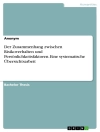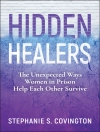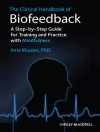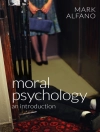Comprehensive and engaging, this extensively revised edition of a student and instructor favorite introduces the basics of critical thinking using the claims of pseudoscience and the paranormal.
* Guides readers through the critical thinking process by considering different types of support (sources, logic, and scientific observation) and ruling out alternative explanations
* Allows students to practice and apply their new critical thinking skills on claims of extraordinary cures including energy treatments, complementary/alternative medicine and faith healing as well as four paranormal claims of consequence: astrology, spiritualism and the afterlife, parapsychology, and creationism.
* Couples a conversational, nontechnical narrative with student-friendly pedagogical tools, including critical thinking questions and a study guide for each chapter.
* Provides clear and open-minded discussions of the paranormal spectrum, belief justification surveys, the placebo effect, and the relationship between religion and critical thinking
Daftar Isi
Acknowledgments ix
Part I Introduction 1
1 Critical Thinking: Your Survival Kit 3
2 The Paranormal Spectrum 13
3 What’s the Harm? Why Study These Things? 25
Part II The Critical Thinker’s Toolkit 47
4 Sources 49
5 Logic (Bonus: The Big Four Informal Logical Fallacies) 61
6 Logic and Language: Fallacies of Ambiguity 79
7 Science 93
Part III Alternative Explanations 115
8 Oddities of Nature and the World of Numbers 117
9 Perceptual Error and Trickery 135
10 Memory Errors 155
11 The Placebo Effect 167
12 Sensory Phenomena, Hallucinations, and Psychiatric Conditions 189
Part IV Paranormal Challenges 211
13 Claims of Extraordinary Cures 213
14 From the Paranormal Sampler: Four Claims of Consequence 229
Appendix A: Why Do You Believe? 255
Appendix B: Belief Justification Survey 261
Notes 271
References 273
Index 295
Tentang Penulis
JONATHAN C. SMITH is a Professor of Psychology at Roosevelt University, Founding Director of the Roosevelt University Stress Institute, and Head of the Pseudoscience and Paranormal Laboratory. He has published 23 books and has written numerous articles on critical thinking, advanced relaxation and mindfulness theory and practice, stress management, and spirituality and skepticism. In 1984 he founded the Roosevelt University Stress Institute primarily to combat pseudoscience in the field. He has created classroom and online classes specifically designed to teach critical thinking skills and evaluate extraordinary claims of the paranormal.












